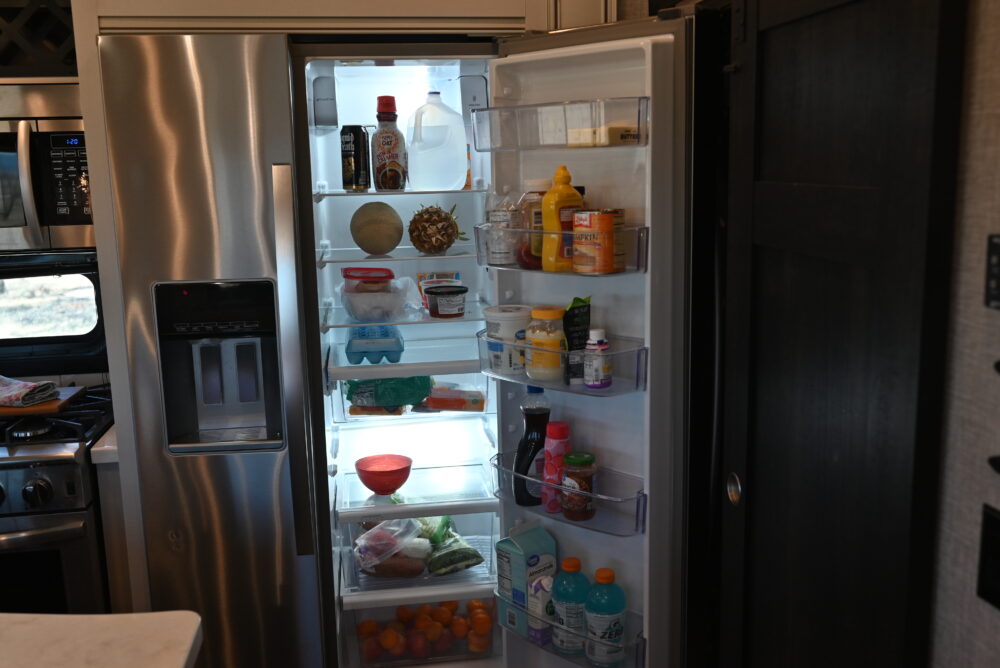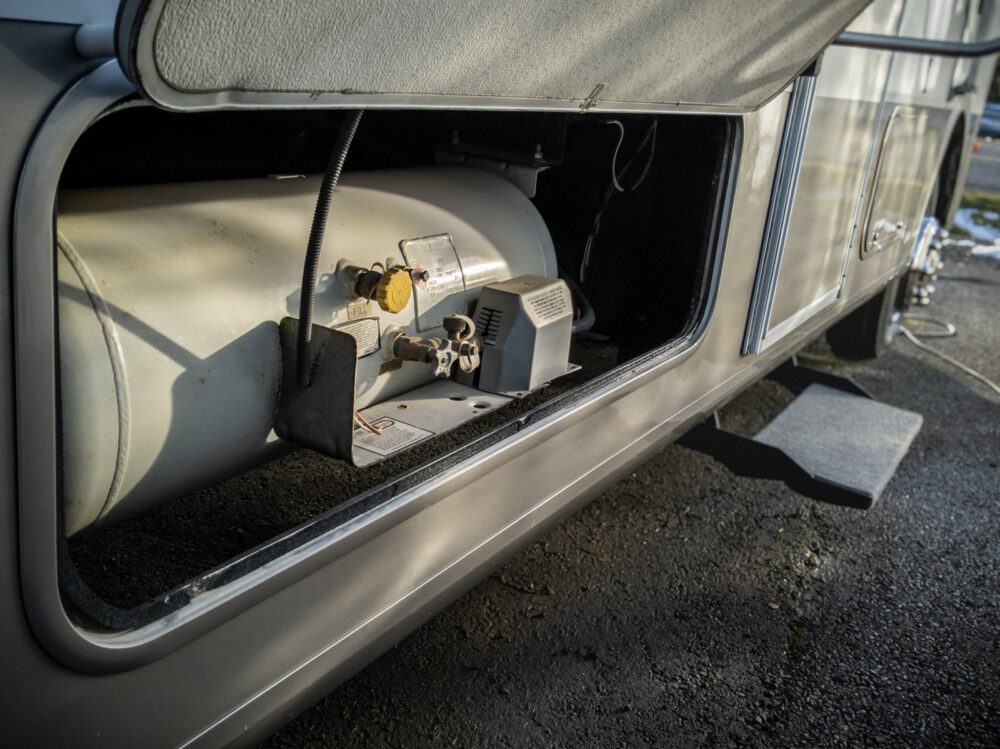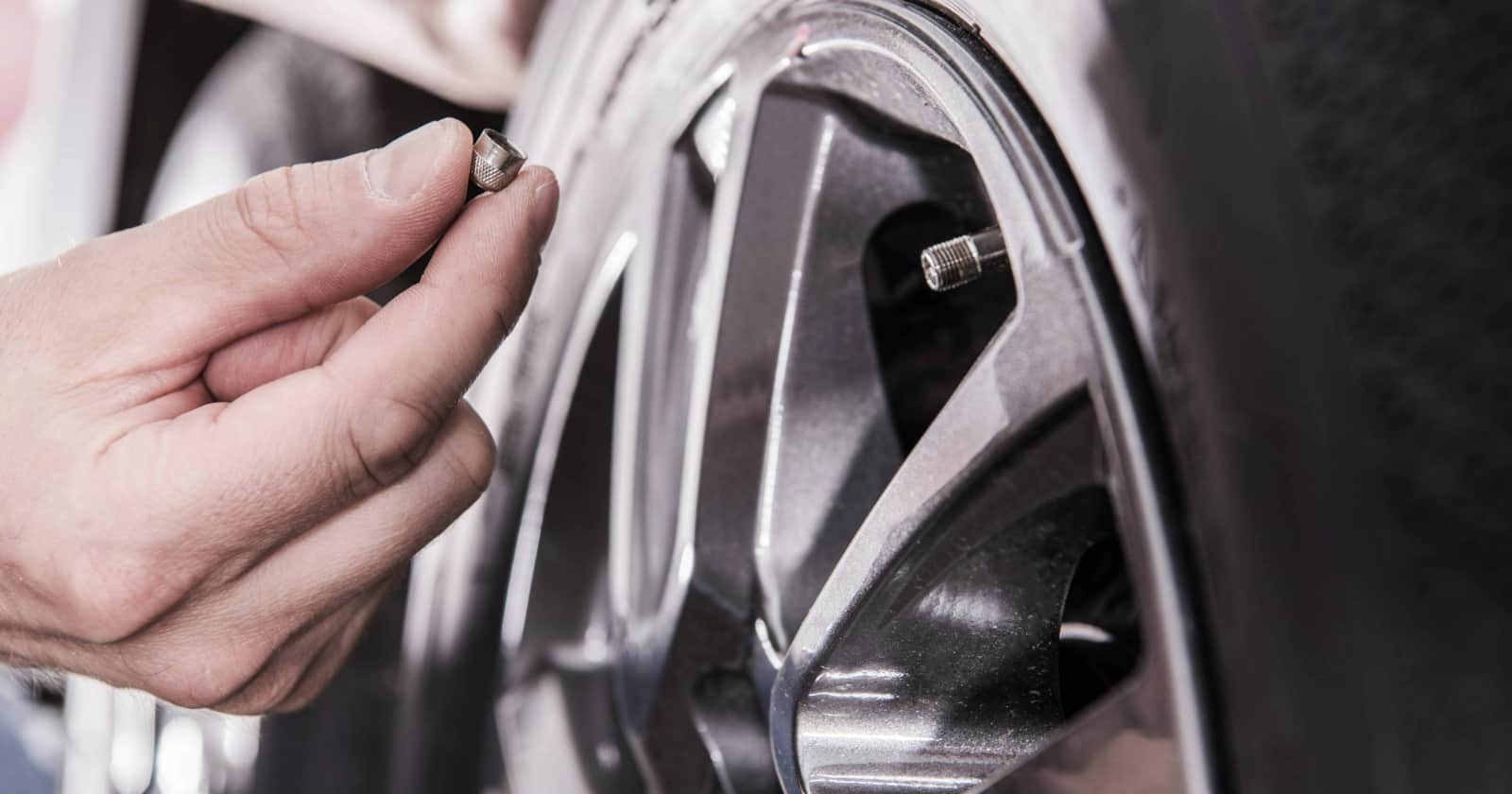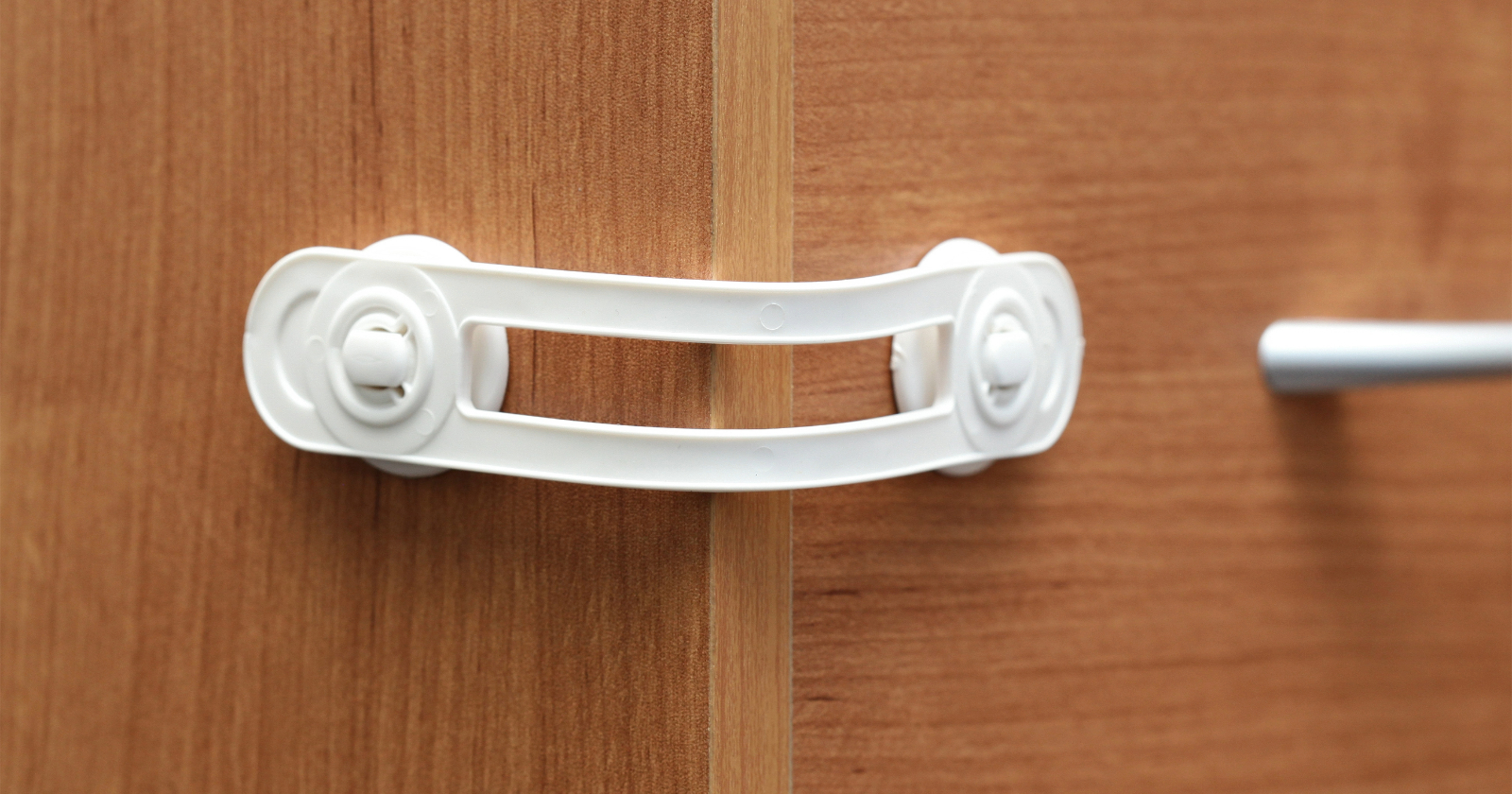
In partnership with Fridge Defend
A Refrigeration Engineer Explains What Happens To Your RV Fridge While Driving
New RV owners often have questions about the safety of using an RV fridge while driving. To address this concern, it’s crucial to understand the various types of RV refrigerators. This article will examine the three primary types of RV fridges and their respective safety considerations.
Types of refrigerators
Before we delve into the safety aspect, let’s take a closer look at the various types of RV refrigerators commonly found in recreational vehicles.
Residential refrigerator
Residential refrigerators are usually found in larger motorhomes with an onboard generator. They primarily run on AC power provided by the campground pedestal, onboard generator, or battery bank through an inverter. While these refrigerators are designed for stationary use, it is safe to use this type of RV fridge while driving in motorhomes equipped with this type of refrigerator.
AC/DC dual power refrigerator
AC/DC dual power refrigerators are gaining popularity as solar and battery technologies advance. These fridges can run on either AC power or 12-volt DC power. Like the residential fridge, these refrigerators use a compressor, so it is also safe to use this kind of RV fridge while driving.
However, it’s worth noting that the ventilation system of all-electric refrigerators can contribute to increased heat inside the RV during hot summer months. Being aware of how and where your refrigerator vents are is a good idea.
If you are a fan of boondocking and like to use solar power heavily, it’s critical that you understand the load your fridge will draw on your solar system and properly plan your solar architecture accordingly to sustain these refrigerators.
Gas-electric RV refrigerator
The most common type of refrigerator found in RVs is the gas-electric fridge, which can run on AC power, DC power, and propane, typically manufactured by Norcold or Dometic. Burning propane actually cools the refrigerator in this type of unit, which may come as a surprise to new RV owners.
In fact, most RVers do not even make the connection between propane and their RV refrigerator until there is a problem. Using the gas-electric RV fridge while driving requires careful consideration of certain factors, as we will explain further.
The problem with using a gas-electric RV fridge while driving
While it may seem convenient to run your gas-electric RV fridge while driving, there are some issues to be aware of. These fridges generate refrigerant using heat, which can cause problems when out on the road.
This type of RV refrigerator is called an absorption refrigerator, and can use your RV’s propane as a power source to cool your refrigerator, reducing the drain on your RV batteries.
Forgetting about the connection
Since it’s a bit unnatural for us to think about using a heating source for a refrigerator, we don’t always equate propane with our RV fridge while driving.
For example, perhaps you have shut down the propane for a tunnel you must pass through, or simply turned it off in the interest of safety because you didn’t think you were using it. Depending on your RV type, you may have also turned off the battery banks while towing and now your fridge has no power source, either electricity or propane.

Behind your AC, DC, and propane powered RV refrigerator is a boiler. When the boiler in the gas-electric fridge overheats, it can lead to two main problems. One of these problems is an inconvenience, the other is a safety hazard. Neither should not be overlooked.
1. Using your RV fridge while driving causes warming of the fridge
Overheating of the boiler can cause the refrigerant production to cease, resulting in a warmer temperature inside the fridge. Many RV owners have reported noticing an increase in temperature while traveling. When hot air cannot escape your RV refrigerator cooling unit compartment, creating a stagnation zone, then the fridge cannot reject its own heat. Failure will eventually occur because the fridge boiler is repeatedly overheating.
2. Cumulative damage and safety risks
When the boiler continues to overheat, it can cause cumulative damage to the fridge and even pose safety risks such as the possibility of fire. These cases of fridge failure and potential hazards are documented frequently on RV forums.
Addressing misconceptions
There is a common misconception that it’s safe to run a gas-electric RV fridge while driving. However, road testing has shown that the boiler can overheat during uphill drives, and turbulence can cause the cooling unit to stagnate. The cooling unit needs proper heat dissipation to function correctly, and if the heat cannot escape, the fridge may fail.
Many RVers don’t realize that a majority of RV fridge fires happen while connected to shore power. Safety for the RV fridge while driving is just one part of the solution. You still have to have a safe solution when parked as well.
How to safely run your RV fridge while driving
Fortunately, there is a solution to the overheating issue faced by gas-electric fridges, both while driving and while parked. The Fridge Defend by ARP is a patented product designed to protect absorption refrigerators from cumulative damage.
The manufacturers do not include this feature in their refrigerators, and cumulative damage often leads to ongoing sales of replacement units due to failures.
Even leading manufacturers of RV refrigerators, such as Dometic and Norcold, acknowledge the importance of controlling boiler temperature to ensure the longevity and safety of their products. Fridge Defend does just that.
Is it safe to use your rv fridge while driving?
So, is it safe to use your RV fridge while driving? Generally, yes. All electric refrigerators such as residential and 12VDC refrigerators are safe to drive with. However, the gas-electric refrigerator, which adds propane into the mix, may need boiler protection, such as one offered by Fridge Defend, if one wants to ensure a long life for the fridge.
Visit arprv.com for more information about Fridge Defend.
Related articles:




What sites did you use for parts? We need a whole 24×80 entry door..
We were locked in and had to have the door lock assembly ripped out.
It was definitely a secure lock.
2008 34BH HURRICANE
I’ve been RVing since the 60s. I was just 10 years old in 1965, and cut my teeth with a 1961 16 ft Aljo trailer. It had a small refer in it, it was pink to match the stove and porcelain sink. Back then refers were pretty rare vs ice boxes. As primitive as they were, they worked great.The gas electric refers didn’t show up until the 70s, and became the standard of the times, and still are. It was always standard to run the refers while driving. They allowed you the luxury of cold food all the time. For an RV refer to be it’s coldest, and make ice, the RV should be as level as possible, while stationary, that keep the gas flowing smoothly, even if stationary but not level, the box will get cold but they won’t make ice. While traveling, the level requirement is eliminated because the RV is rolling, also, the wind from the road keeps the area behind and under the box moving and lowers the risk of overheating. If the pilot is protected from the wind, it keeps the pilot from blowing out. In my 40 years experience, I’ve seen very few blow out, or overheat, and never catch fire. So I say, keep the works behind your refer clean from dust, and run that refer on the road. You won’t regret it. You will have cold food and drinks when you want them.
Millions of miles are traveled every year by RVs using LPG fridges; that is exactly what they are designed to do. Based on the overall numbers in use, fridge fires are rare.
I’m shopping for some salvage parts for my RV and have visited several sites of RV Salvage Yards. I was surprised by the number of RVs destroyed by fire. I asked the parts dealers what was the source of the fires. They told me the duel source refrigerators caused all the fires in the fire damaged RVs. I think I will only be using the electric power option.